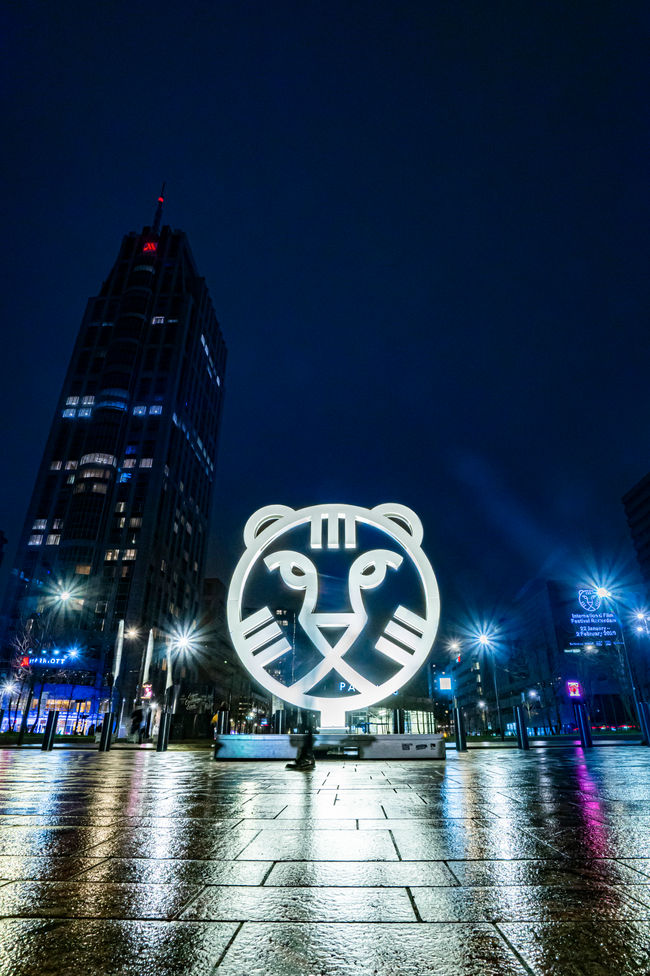The Expansiveness of Black Freedom
02 February 2020
The Expansiveness of Black Freedom By Young Film Critic Alithnayn Abdulkareem
By Young Film Critic Alithnayn (Fareeda) Abdulkareem
Presenting an expansive repertoire of shorts, features and multimedia installations, the experience was as immersive as it was rooted in thought-provoking explorations of Black expression. Nuance is perhaps the most definitive word to cover the array of cinema featuring black life at IFFR.
From the languorous pace of Air Conditioner, a film giving the audience witness to the day of a poor repairman from the Angolan capital of Luanda to Rocks, a film that places a British Nigerian teenage girl at the centre, without limiting her conditions or her responses to them in ways devoid of context. While these films have distinctly different tones, they both explore a suffuse world of perspective to their central characters, who contend with tensions distilled into short time spans. Both are approached with uncommon empathy, given their less privileged backgrounds.
In Ladj Ly’s lauded debut Les Misérables – a textured portrayal of police brutality, and the common people-versus-systems that feels resonant with the times – its standout quality is none of the flash. In the world Ly crafts with much detail, Black people are allowed to be; facing problems that would translate even without the racial context of state violence against young Black boys. The particular manner that culture distils itself into an almost mundane detail is noteworthy. The black characters move around their lives wearing Ankara – the Dutch fabric whose aesthetic has been co-opted as distinctly African. In one scene, Brigadier Gwada comes home to his mother and her friends playing a game around a table. Their outfits bear the assemblage of brightly coloured birds, but it does not function as an entry into a larger structural examination of race. It simply displays people of African descent, moving about their lives with their culture ingrained in the mundane.
Another standout is Transcendental Rhythms, the series of shorts created by The Ummah Chroma, the collective made up of Terence Nance, Bradford Young, Kamasi Washington, Jenn Nkiru and Marc Thomas. Spanning four short films co-directed by the members, Transcendental Rhythms defies simple labelling. Viewing feels like exploring wordless questions. As Terence Nance would remark, in Armonia, the first short, a space had been created for the black subconscious to be visualised.
In an interview with Beats 1, Kamasi Washington, speaks of artistic practice. "We have become masters of sneaking in the really cool stuff that we could do. You go to artists and they say I just want this little drop of what you have, and you’re like. I will give you what you asked for, and sneak in what you really want, this is what makes it extra special."
That 'extra special' in many ways encompasses the radically beautiful, mystic yet grounded production that is Transcendental Rhythms. Indeed, this work is no little drop. The juxtaposition of instinctiveness with method. The breaking and remaking of possibilities. It is a trippy beauty that subsumes the mind on a journey of reflection. About possibilities, always about possibilities. "We were all on some level, experimenting, trying to make a new language," Jenn Nkiru, says.
Before it runs away sounding like a deranged mantra, the short grounds itself in real institutional concerns. As the works constitute themselves as fragile and beautiful fragments, the reminder is that gatekeeping remains largely resistant to the evolution of black consciousness rearing its head. It is reiterated, in interviews with the members, in the songs and when Common raps while lit to an almost holy degree, and in the shots. Black people must take stewardship of their power.
All the films are exercises in expanding that autonomy. "Our age is a stimulus," Nance remarks "yet we find ourselves making space for a prayer."
IFFR is that prayer answered to an extent.















